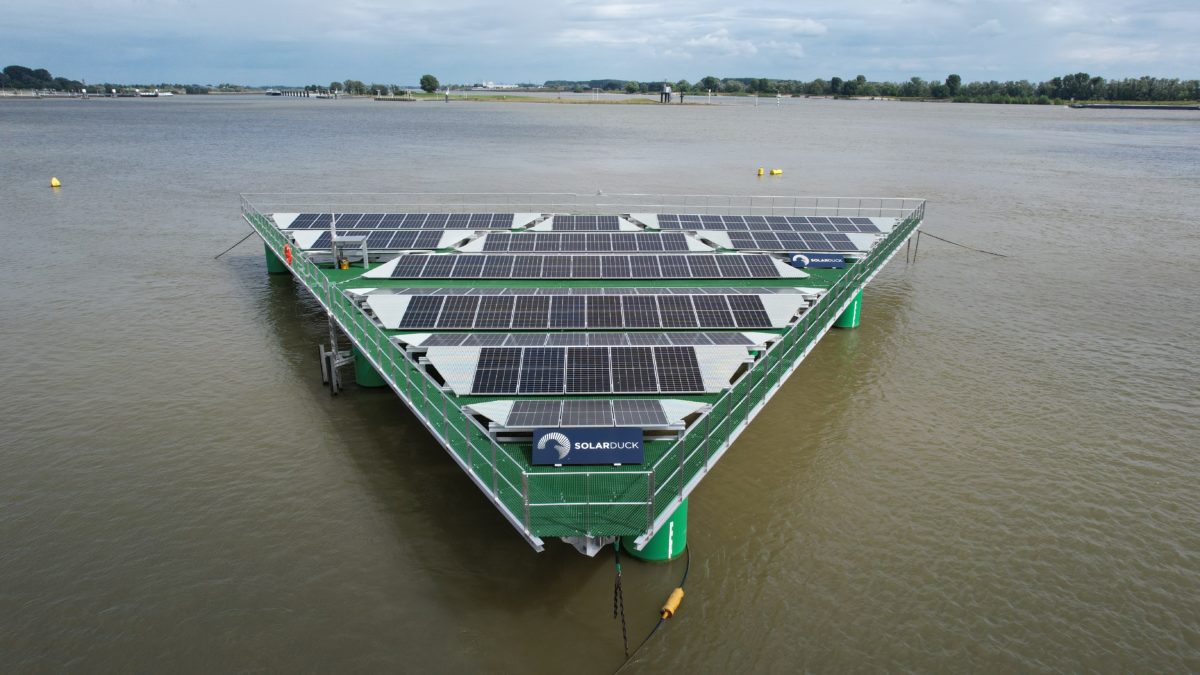Netherlands-based testing, inspection, and certification (TIC) provider Bureau Veritas (BV), has granted approval-in-principle (AIP) to Dutch start-up SolarDuck for its offshore floating solar solution ‘King Eider.'
An AIP is a framework used by BV to demonstrate project feasibility for novel technologies that are not covered by traditional classification prescriptive rules. It is used to demonstrate technical feasibility to project partners and regulatory bodies.
“This is the first time such an approval has been granted to an offshore floating solar technology, marking the beginning of a new era for this form of renewable energy,” SolarDuck said in a statement.”The AIP covers the design methodology of the unit’s structure and validates the relevant parts against guidance note NI631 on the certification scheme for marine renewable energy technologies, and NI572 on the classification and certification of floating offshore wind turbines.”
The first, 64 kW pilot project was deployed on inshore waters in the Waal (Rhine), the widest river of the Netherlands, near IJzendoorn, a village in the province of Gelderland. According to its developer, the structure holds the solar panels more than three meters above water, is able to handle coastal sea conditions and hurricane-force winds, and is optimized for offshore sites in estuaries and natural harbors as well as near-shore sites.
“Bureau Veritas is a key name in the maritime industry and well known for their certification of maritime structures. We are immensely grateful for their support and cooperation on certifying our technology and setting standards for the offshore floating solar industry,” said SolarDuck CEO, Koen Burgers.
The company's basic floating platforms are triangular structures measuring 16x16x16m. They resemble offshore floating wind platforms or floating oil platforms. They can be flexibly connected together to form large plants.
“The idea is based on our offshore heritage,” Burgers told pv magazine in March. “Our company is a spin-off from the research department of the Damen Shipyards Group in the Netherlands, a company which uses the best of industry practice to design a reliable solution which is able to cope with the harsh maritime environment.”
This content is protected by copyright and may not be reused. If you want to cooperate with us and would like to reuse some of our content, please contact: editors@pv-magazine.com.




2 comments
By submitting this form you agree to pv magazine using your data for the purposes of publishing your comment.
Your personal data will only be disclosed or otherwise transmitted to third parties for the purposes of spam filtering or if this is necessary for technical maintenance of the website. Any other transfer to third parties will not take place unless this is justified on the basis of applicable data protection regulations or if pv magazine is legally obliged to do so.
You may revoke this consent at any time with effect for the future, in which case your personal data will be deleted immediately. Otherwise, your data will be deleted if pv magazine has processed your request or the purpose of data storage is fulfilled.
Further information on data privacy can be found in our Data Protection Policy.